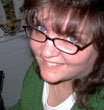Sienna had a great question: Do you have any tips for creating a very different world without having to spend pages and pages on description?
The first thing is to know you don't have to describe EVERYTHING all at once. How your characters interact with the setting is key.
Here is part of a writing exercise from my notes on my new fantasy novel, Koda's Quest. It's about setting:
A character we often forget is the setting. The setting brings the character into the story. Have something specific in mind. Choose carefully. It’s part of the hero’s hidden need. It can lend itself to natural symbolism.
What is the specific setting for Koda’s Quest?
"The Mirasol Valley in the middle of the Blacktooth Mountains where the Stone Kings stand guard."
Is it Koda’s ally or enemy? "Both"
Write a quick paragraph where Koda expresses his feelings about the setting.
Koda stared up at the Stone Kings. Karack, the taller of the two, faced direct south. Anar stood gazing to the east. Koda never got tired of their solemn expressions or wondering what their last thoughts were before the magic transformed them from flesh and blood to solid rock.
“Someday, I’m going to climb you,” he whispered.
The breeze seemed to whisk his words away as a flock of crows rose from the sunflower fields. The sun shone heavy on his head, but he shivered as the caustic cries of the black birds followed them out of the valley.
Do his feelings change in the course of the story? Why or why not? "No, they do not change because his destiny is so linked to saving his world."
Find one symbol inherent to the place that could point Koda to his hidden need. "Karack, though bigger, is crumbling more rapidly than Anar. Anar is less important in everyone’s mind, but it is really because of him that Karack can be strong. Koda will find out he needs others to help him be strong."
Can Koda come upon this during the course of the story? "Yes, in the caves Koda finds a journal. It belonged to King Karack. In it, Karack writes about his need for Anar."
Is this the right setting for the book? "Yes!"
Now, you interject your book and characters in the questions and see what you come up with.
Remember, the setting is also a character. We can come to know it a little at a time, just like the living characters in the story.
Don't Plant Trees!
12 years ago







